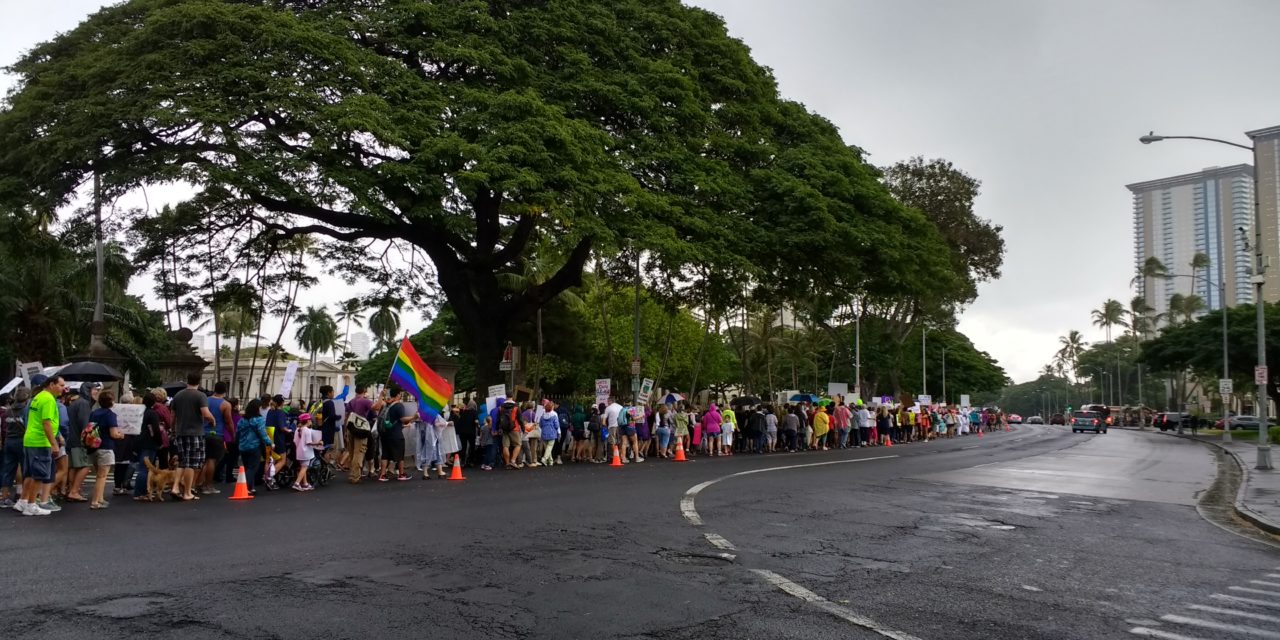By Sarah Hendrix | Staff Writer
The year of 2017 has provided a whirlwind of good and bad days that have happened in the U.S. and around the world. This year has felt like a rollercoaster everyone wishes they could get off with events such as: the deadliest mass shooting in U.S. history, a total solar eclipse and the impeachment of South Korea’s president. From January-December let’s take a look back at some of the events that have shaped the world this year.
January 20: Inauguration Day
President Trump was sworn in as the 45th president of the United States. Following the inauguration, the Trump administration claimed that media photos framed the event to make it look like it was poorly attended. Later President Trump claimed that his inauguration was the most watched of all time, despite photos that showed Barak Obama’s inauguration in 2008 had a larger attendance.
January 21: Women’s March
The day after the inauguration hundreds of thousands of people attended the Women’s March in Washington, D.C. to show resistance to Trump and express their support for women’s rights. Worldwide over two million people marched in the streets including several thousands of people who marched in Honolulu.
February 6: Longest Reigning British Monarch
Queen Elizabeth II was the first British monarch to celebrate her 65-year reign with a Sapphire Jubilee.
March 10: South Korean President Impeached
South Korean President Park Geun-hye was impeached, resulting in her removal from office because of corruption and mismanagement of funds.
April 13: U.S. dropped “Mother of All Bombs”
The U.S. Air Force dropped the “Mother of All Bombs” on suspected ISIL targets in Afghanistan. It was the largest non-nuclear bomb set off in history.
May 22: Ariana Grande Concert Bombing
In Manchester, England, a bomb went off at an Ariana Grande concert killing 22 people, some among them were children.
June 6: Hawaiʻi Continues to Follow Paris Climate Accord
Hawaiʻi enacted legislation to follow the Paris Climate Accord despite President Trump’s decision to withdraw from the agreement. Gov. David Ige delivered a speech explaining how the effects of climate change are affecting the state of Hawaiʻi.
July 26: President Trump to Ban Transgenders from Serving in Military
President Trump sent out a tweet saying that he intended to completely bar transgender people from serving in the military. He justified the ban because including transgender people would increase the cost of health care and reduce battle-readiness.
August 12: Charlottesville Attack
During a rally of white nationalists in Charlottesville, Va., a speeding car slammed through counter protestors, killing one and injuring 35 other people.
August 21: Solar Eclipse
The first total solar eclipse spanned across the U.S. for the first time in 99 years.
August 25: Hurricane Harvey
Hurricane Harvey made landfall in Texas as the first category 4 hurricane to hit the U.S. since 2004. It resulted in $180 billion dollars in damage because of the excessive flooding in the Houston metropolitan area.
September 10: Hurricane Irma
Hurricane Irma made landfall in Florida and was declared the world’s longest-lasting powerful hurricane ever recorded. Destroying much of Puerto Rico, the Virgin Islands and parts of Florida, Hurricane Irma started as a category 5 hurricane and subsided to a category 4 by the time it hit Florida.
October 1: Las Vegas Mass Shooting
The Las Vegas mass shooting is now recorded as the deadliest mass shooting in U.S. history. It happened during a country music festival, killing 58 people with more than 500 wounded. The shooter positioned himself in the Mandalay Bay Resort, high above the crowd and open fired on people before killing himself.
October 8: California Wildfires
California wildfires erupted in northern California, destroying nearly 9,000 homes and buildings and killing at least 44 people. The fires did not become fully contained until the end of October and are now recorded as California’s deadliest wildfires in history.
October: The #MeToo Movement
In the first few weeks of October, Hollywood producer Harvey Weinstein was accused by multiple women of sexual assault and harassment. As the claims came out, a hashtag that was created by Tarana Burke 10 years prior resurfaced. Throughout the month of October, #MeToo became a voice for survivors around the world who have suffered from sexual violence and was named person of the year by TIME Magazine.
November 21: Robert Mugabe Resigns Presidency After 37 Years
President Robert Mugabe of Zimbabwe resigned from his position after 37 years in power. Mugabe was able to destroy a nation that was once prospering for the sake of power, yet some still refer to him as a revolutionary hero.
December 1: Hawaiʻi Brings Back Nuclear Warning System
As the war on words continues to escalate between President Trump and North Korea’s President Kim Jong-un, Hawaiʻi brought back a nuclear warning system that has not been used since the Cold War. With North Korea continuing to threaten the U.S., Hawaiʻi has reintroduced a system to warn residents of an impending nuclear attack.
December 6: President Trump Recognizes Jerusalem as Israel’s New Capital
President Trump recognized Jerusalem as Israel’s capital and plans to move the U.S. embassy from Tel Aviv to Jerusalem sparking controversy in the Middle East.
December 22: Tax Bill Signing
President Trump signed a 1.5 trillion tax overhaul legislation in the Oval Office two weeks earlier than expected. Corporations are reaping the benefits of the business tax cuts this new bill imposes. President Trump claims that the bill is for the middle class and for jobs.






